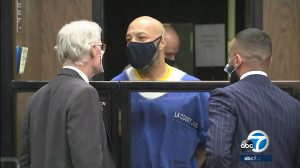ABC7 publishes an article covering California Criminal Appeals attorney, Matthew Barhoma’s work in a re-sentencing of his client pursuant to Penal Code 1170(d)(1) and AB 2942.
The article highlights a recent success for Power Trial Lawyers, P.C., where the Firm successfully reduced a client’s sentence just mere 9 months after retaining the Firm. Our client, Mr. Earl Snoddy, spent the last 27-years behind bars for a crime he likely did not commit. The Firm filed a conviction integrity request. In addition, Mr. Snoddy, through his counsel, sought to recall and renegotiate on the sentence by submitting an AB 2942 / Penal Code § 1170(d)(1) petition. The matter had deep implications among the California Three Strike laws and various enhancements, as discussed by the ABC7 article and coverage on the matter.

Family Reunited
 Los Angeles Criminal Defense and Appeals Lawyer Blog
Los Angeles Criminal Defense and Appeals Lawyer Blog











